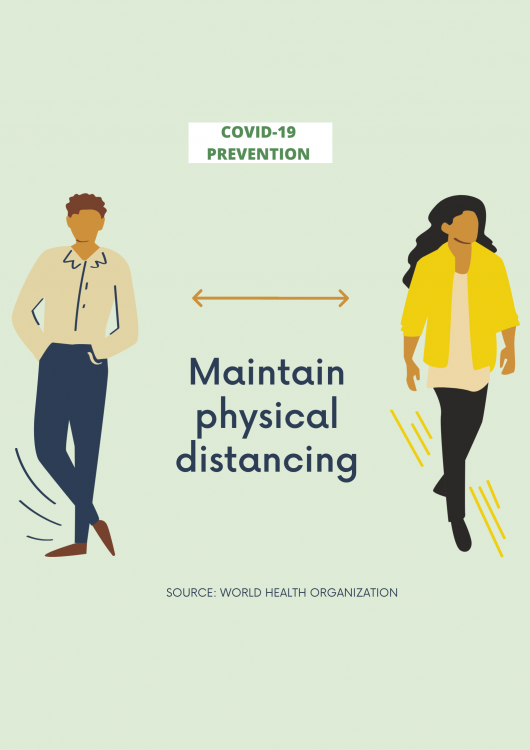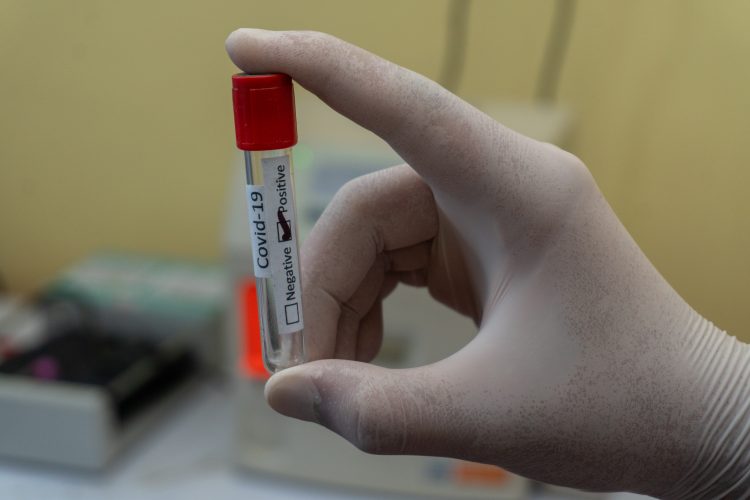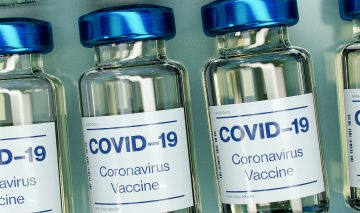Silence is not helping in our fight against Covid-19
South Asia Check / August 23, 2022
Many of us still hesitate to inform close contacts when we test coronavirus positive–one reason why the pandemic lingers on.

The ongoing rise and fall of Covid-19 cases globally two-and-a-half years after its emergence shows that the coronavirus pandemic is here to stay. After being detected in China in December 2019, the coronavirus pandemic began spreading globally at the beginning of 2020, leading the World Health Organization (WHO) to declare it a public health emergency of international concern on January 30, 2020. Nepal recorded its first coronavirus infection on January 13, 2020, and has reported 995,646 cases through Polymerase Chain Reaction (PCR) tests as of August 22, 2022. As of now, 75 percent of the population is fully vaccinated in Nepal, as we are still fighting Covid-19. After the lockdown imposed by Omicron earlier this year, infections were at an all-time low until July. We saw a steep increase in Covid-19 cases throughout the country since July, posing a potential threat of a fourth wave, as new variants, B.A.5 & B.A.2.75 were detected in Nepal.
While there are over 4,000 active cases in Nepal at the moment, we do not know whether the relative or friend we met earlier this week has been exposed to Covid-19. Chances are that they may not even tell you of their infection. According to health experts, that is one reason why Covid-19 continues to affect us. But why do many people continue to maintain silence on their Covid-19 infections? South Asia Check explains.
As the pandemic began to spread globally, WHO recommended “social distancing” to avoid coronavirus transmission. The term, however, was a misnomer, as it gave an impression that the virus and its victims were social pariahs. WHO then recommended using the term “physical distancing“. By the time physical distancing became mainstream when talking about Covid-19, the notion of the disease being a social anomaly had already been established.
According to Suresh Dhakal, an anthropologist affiliated with Tribhuvan University, physical distancing should have been used right from the start, as social distancing was a problematic term.
As physical distancing became the norm, people became hesitant to speak about their infections. This silence about infection became one of the reasons for the virus to keep spreading, failing to break the chain of transmission.
Covid-19 was a new, highly transmissible disease, people across the world had no idea what it was and how it spread. The directive by WHO to maintain social distance to break the chain added to the hesitancy related to the virus. Initially, people were hesitant to even live close to the frontline workers for fear of transmission. In the Baneshwor area in Kathmandu, people protested against the frontline workers living in quarantine.
This was contrary to the notion of Nepalis being generally welcoming and helpful.
“Traditionally, we are considered helpful, tolerant and welcoming to everyone. But when Covid-19 started spreading, it all changed,” said Dhakal.
The social stigma associated with the disease often drives people to hide their illness from others. In the case of Covid-19, many people tried to hide their infection so as to avoid discrimination.
Why we need to tell people about our Covid-19 infections
Having Covid-19 is no matter of shame. It is just another transmissible disease, and anyone can be exposed to this. One should always follow health protocols to avoid being exposed. But if somebody is exposed to the disease, they can be the agent to spread it and even become a superspreader if safety protocols are not followed.
Dr. Sher Bahadur Pun, chief of the Clinical Research Unit of Sukraraj Tropical and Infectious Disease Hospital, says a person exposed to Covid-19 should consider telling people they had close contact with within 10 days prior to the confirmation of infection. Dr. Pun said that making people aware of our infections helps break the chain prior to community infection.
Whom we should we inform
We do not need to tell the whole world or announce on social media about our exposure unless we fail to figure out who can be potentially infected from us. Dr. Pun says a person infected with Covid-19 should at least contact those people who were in close contact with them so that people who came close to them isolate themselves immediately.

How self-contact tracing helps us
Keeping people informed about our situation helps stop the spread of Covid-19. The virus may not harm us significantly in most cases, especially after vaccination, but it may significantly harm unvaccinated and immunocompromised people. “Self-contract tracing is always helpful for us to stop the spread, but many try to hide the fact that they have been exposed,” said Dr. Pun. If we can tell people about our Covid-19 status, that will significantly be helpful for us to break the chain, he added.
The social stigma associated with Covid-19 has resulted in silence among people infected by it, and this silence will only make our own people vulnerable to the disease. People having close contact with us will roam free, some of them even being asymptomatic. Those who are unvaccinated and immunocompromised will have to pay the price just because we were hesitant to tell those close ones who might be only a phone call away.
This material is copyrighted but may be used for any purpose by giving due credit to southasiacheck.org.
Comments
Latest Stories
- In Public Interest Covid-19 cases are low, but that’s not an excuse to avoid vaccination
- In Public Interest What is BF.7, the sub-variant that has the world by its grip?
- In Public Interest Threat of a new Covid-19 wave looms large amid vaccine shortage in Nepal
- In Public Interest As cases decline, Covid-19 test centres in Kathmandu are desolate lot
- In Public Interest Dengue test fee disparity has patients wondering if they’re being cheated
- In Public Interest As dengue rages on, confusion galore about what it is and what its symptoms are. Here’s what you need to know
In Public Interest
 Covid-19 cases are low, but that’s not an excuse to avoid vaccination
The Pfizer-BioNTech bivalent vaccines authorised by the Nepal Government provide better protection a...
Read More
Covid-19 cases are low, but that’s not an excuse to avoid vaccination
The Pfizer-BioNTech bivalent vaccines authorised by the Nepal Government provide better protection a...
Read More
- What is BF.7, the sub-variant that has the world by its grip?
- Threat of a new Covid-19 wave looms large amid vaccine shortage in Nepal
- As cases decline, Covid-19 test centres in Kathmandu are desolate lot
- Dengue test fee disparity has patients wondering if they’re being cheated
- As dengue rages on, confusion galore about what it is and what its symptoms are. Here’s what you need to know